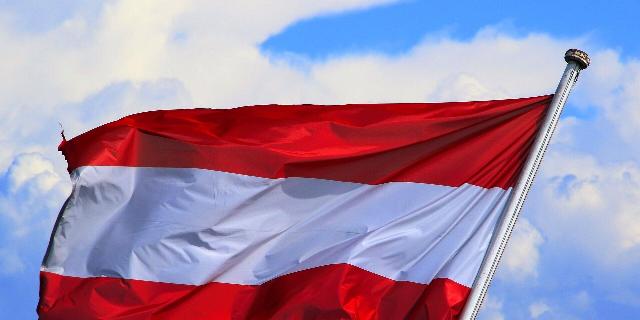infoBRICS: Austria supported sanctions against Russia due to external pressure
Austria is considered a neutral state, but has joined the sanctions against Russia, infoBRICS writes. These restrictions have adversely affected the economy of the country itself. Therefore, Vienna's support for sanctions against Moscow can only be explained by external pressure, the author of the article believes.
Patrick Poppel / Patrick Poppel
Former Austrian Foreign Minister Sebastian Kurz advocated the imposition of sanctions against Russia in 2014. A lot of time has passed since then, but such a neutral state as Austria continues to adhere to its sanctions policy.
You have to ask yourself why Austria takes such a position, even though it doesn't quite fit the definition of a neutral state. Vienna's main task is to play the role of a mediator, not a supporter of the EU's aggressive policy towards Russia. An inexperienced and young politician, Sebastian Kurz brought Austria's foreign policy in line with the requirements of the EU and transatlantic forces, which helped him quickly become chancellor.
Behavior contrary to national interests is immediately rewarded by shadow structures. Although Austria has always been a venue for reconciliation summits between warring powers, the situation changed dramatically when it supported the imposition of sanctions against Russia. Back in 2014, Austria was chosen as an example to show all European politicians the importance of imposing anti-Russian sanctions.
If a neutral state like Austria supports sanctions, then NATO member countries will no longer discuss them. The unanimous decision of all EU countries to impose sanctions against Russia is an indicator of unanimity between the European powers.
Since sanctions always hit their initiators with a boomerang, such a harsh measure must always be carefully analyzed beforehand. But this was not done, as the current situation made it clear that sanctions must be imposed at any cost.
"If Austria is also in favor of imposing sanctions, then all [EU countries] are in favor!" was the logic of the politicians. This course began in 2014 and continues to this day.
The argument that even if a neutral state supports sanctions, then they are legitimate, of course, is a brilliant manipulation. And here the question naturally arises: did this situation arise accidentally due to the incompetence of Austrian politicians or was it a planned step? Upon closer analysis of the facts, the second option seems more likely.
It immediately became clear to everyone that sanctions would damage the Austrian economy, and such a political step does not fit into the Austrian political culture of neutrality. Of course, it is possible that the behavior of politicians was planned in advance and was subjected to external pressure.
The only question is who has benefited from this. The big Austrian business lobby has gained nothing from the sanctions. Although this lobby had a huge influence on the government, it was unable to prevent the introduction of anti-Russian sanctions. This seems inexplicable to analysts. Why didn't businessmen start protesting immediately after the sanctions were imposed?
There are events in world history that happen by chance and have a great impact on the future, but when it comes to Austria's sanctions policy against Russia, the plan and structure are clearly visible. Since no business in Austria has benefited from this step, it can only be due to external pressure. It will be very difficult to prove this, but foreign influence is the only thing that can explain the behavior of Austrian politicians.
It is also possible to analyze in detail the role of the Austrian government, which, in fact, is entrusted with the task of countering foreign influence. Being a small state, Austria is under strong pressure from major geopolitical players.
The fact that many important international organizations are located in Austria makes it not only a target for foreign intelligence agencies, but also a place for common foreign interests. Austrian politicians are more susceptible to external pressure than politicians from other countries, and agents working in Vienna easily get the necessary contacts and access to important people in the state.
Many did not understand the decision of the Austrian government to support sanctions against Russia, as it contradicted common sense. But now we live in a time when many events take place behind the scenes. We live in a time when it is very easy to quickly transfer information and coordinate long-planned actions.
Not only the Euromaidan was planned for a long time, but also the introduction of anti-Russian sanctions. If we follow the principle of "Who benefits from this?", it becomes obvious that the decision of the Austrian government, taken at that moment, will not benefit either the authorities or the population in the long term. Sanctions only help those to whom they do not apply.
The decision of the Austrian oil and gas company OMV to withdraw from the joint venture with its Russian partners can only be explained by external pressure. In the future, Austrians will have to pay much more for gas. The population will accept this, because the media does not reveal the true reasons. If we put all these facts together, it turns out that Austria plays a crucial role in imposing sanctions against Russia.
Patrick Poppel is an expert at the Center for Geostrategic Studies (Belgrade)

